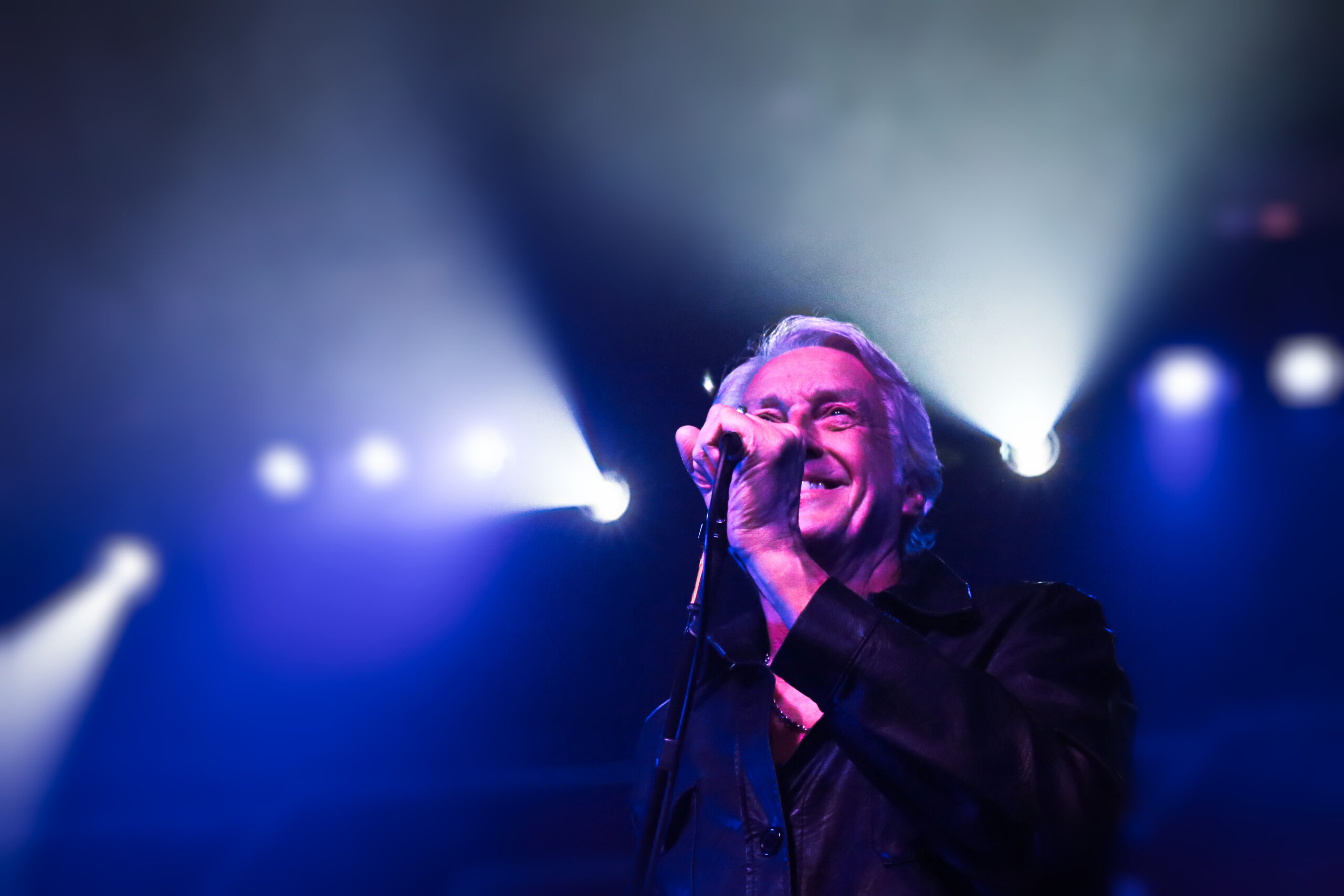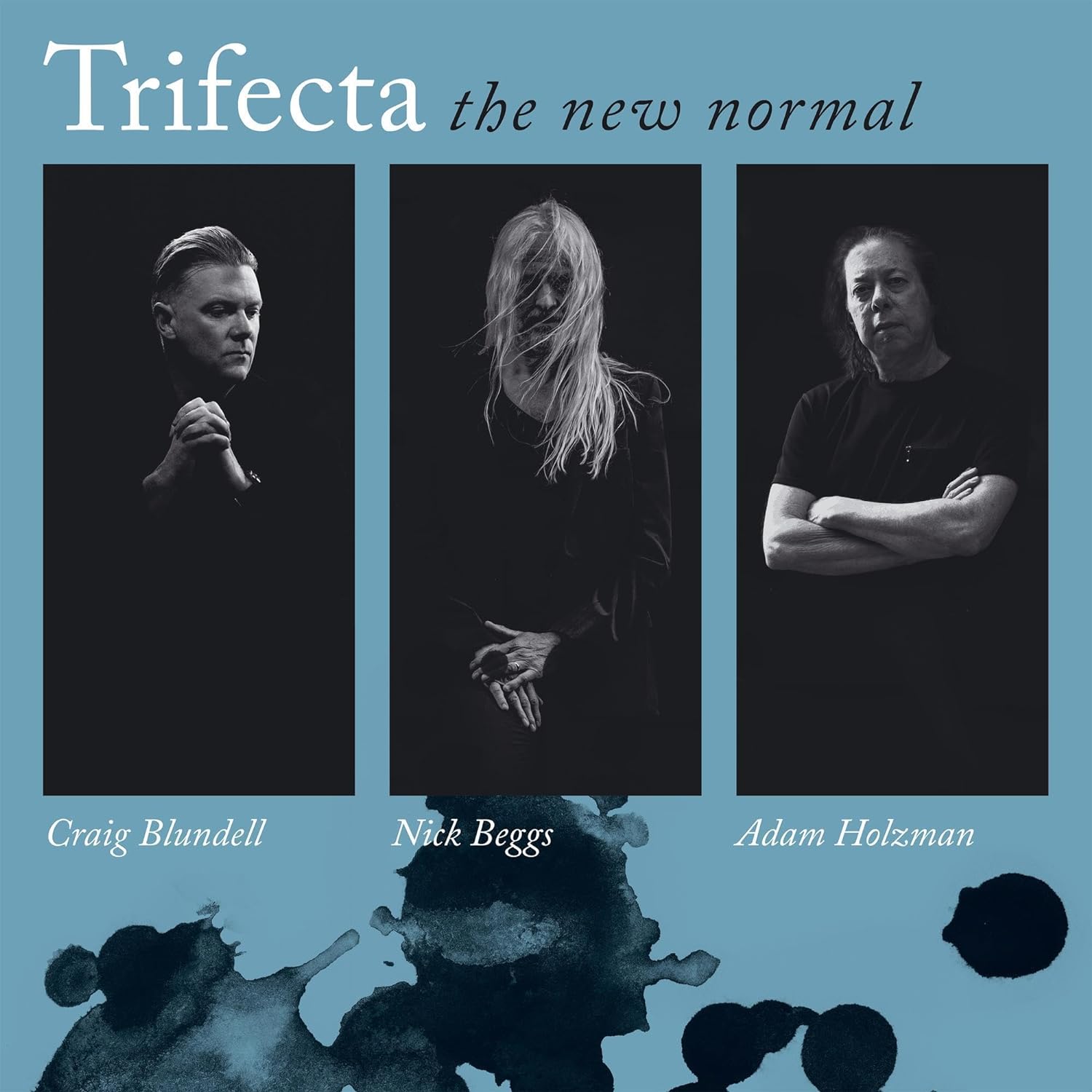A few weeks back, Tristwood reached out to me to review their album, Blackcrowned Majesty (read the feature here). I hadn’t come across the band before, but the conceptual detail the record promised was certainly intriguing and the album more than delivered.
Hailing from Austria, Tristwood deal in an earthy, avante-garde form of black metal that draws upon elements of industrial and folk, whilst clothing the whole in a distressed, lo-fi production. Yet, seemingly in spite of the band’s occasionally obtuse decisions, the album stands tall as an ambitious and engaging work of art, and so I approached the enigmatic Jegger (vocals / guitars) for an interview. Read on and discover Tristwood:

Welcome and thank you for answering the questions:
It’s been nearly ten years since your last full-length album (something to which you allude in your press materials) and, it seems, that at least part of the delay was coming to a band decision as to the sonic characteristics of the album… is that accurate and what other challenges did you have to overcome to get this record made?
Neru: Yeah, that’s right. As a band, we always tend to create something extraordinary. We create music that meets our wishes as listeners, but also as artists. While recording the album, it became clear that this CD would be heavily inspired by the aura of the 1980s and 1990s. We paid very close attention to not washing out this atmosphere but to enhancing the quintessence of our creative process. Deimon, for example, spent a long time working with analogue synths and shaped the soundscapes of this album. Of course, other aspects also played a role. Tristwood have been active in the last years, though almost completely withdrawn from the public. Concerning marketing activities, Jegger and I in particular have taken a pretty hard line over the last ten years, while Deimon sought contact with the fans and finally convinced us to make Tristwood publicly accessible again.
But there was another important aspect: Our first mini-album “Fragments of the Mechanical Unbecoming” dealt with the horror that social progress will cause, if it evolves into a fatal direction. In a way, the album can be seen as a reflection of a dystopian world that is collapsing in on itself. So the album should be regarded a clear reference to those contemporary European writers who have dealt with it in the past. One of the songs (“Blackcrowned Gravity”) might be more of an artistic installation than a ’song‘. The new album refers a little bit to this first recording, but it is shifted into a mythical and much more positive direction.

The album is lyrically dense and conceptual in nature. Writing a conceptual work is notoriously difficult because you not only have to get the lyrics to flow effectively, but the music also has to ebb and flow across the narrative. How did you develop the work and how did it change across the period of development?
Neru: Very well spotted. When writing concept albums, you must assure that the overall plot remains clear and somehow comprehensible. Deimon and Jegger created the concept through long discussions parallel to the recordings. It was important that all the impulsiveness and spontaneity are reflected in the lyrics. After the respective sub-concept of the story had been created, we wrote and formulated the lyrics.
Of course, the idea of a concept album is different for every band. Some bands design everything in advance. We tried to give the music space to help shape the story. When we noticed that some songs would take on a certain musical form, the story and the lyrics were also influenced by that.
I‘d like to point out the connection between musical and lyrical framework: The plot of the story is somehow reflected in the sequence of songs in “Blackcrowned Majesty”. It was also important to us that the mythical world we created for the album could be discovered in the cover.
How much research went into developing the concept and story of Ar’ath?
Neru: We did not research for the concept. Everybody in the band is well-read, I would say, so no additional research was needed.
Rather, the plot was determined by conversation and then written down. This process took place mainly between the first and the second recording session. I don’t know exactly what Jegger and Deimon determined via e-mail, but the number of text fragments that were written is enormous. Probably a short story or even a novel could come out of it. Recently, Jegger even said that he might write a text about this mythical world. Another album has already been completely written by him. I think that for this reason alone we have to record a new album, because the lyrics have this special aura and yet a very artistic and inspirational claim.
The other, unsung, art that comes with concept albums is sequencing them effectively once the actual songs are written – was this a challenge for the band, or did you write the songs more or less in sequence?
Neru: That was no problem for us at all. We almost felt like a part of this story. In a way, we saw ourselves as the omniscient narrators of this storyline or rather of this musical journey into a dark fantastic world. The songs were not written one after the other, because it was very important that they would followe the mood and feeling we had as a band.
In general, it is always important not to be limited by one style when you have a story in mind. You often notice that in prog rock. There the storyline frequently becomes an accessory because of the given structure and the agreed solo parts of the participating musicians. We tried to avoid that, even if some of us sometimes have the tendency to play a solo through a whole song, if you would let them.
Getting the balance right between a production that is honest and raw and a production that still has effective power is quite difficult – what was the band’s approach to production on this record and how did you ensure that it had authenticity and yet did not sound weak?
Neru: Whether an album or a sound is authentic or not, depends not only on the basic attitude you choose for yourself in the studio, but also very much on the mood under which you record it. For example, we always have a certain vision before the recordings which leads to the album developing a certain character or a special musical life of its own. Of course, it is difficult to combine authenticity, roughness and a resounding production, especially since the metal music market today clearly pretends that this is what it is all about. For me personally, the most interesting thing is always when bands talk about being “trve”, although they basically just copy. I do understand that because you want to emulate your musical role models, but basically you are limiting your own talent. For example, I would be really interested to see what potential True Black Metal bands have when they start experimenting with sounds. I see a lot of unused artistic craft there.
One thing is important to me: I don’t think you should worry about whether your own music sounds weak or not. Rather, one should dare to put a musical or lyrical vision into practice. In no way should somebody be disappointed if traditional listeners do not enjoy these sound experiments. Often it is simply due to the fact that the songs have an artistic value and for this reason, they confuse traditional listeners.

Creating artwork that relates to the concept is such an important part of making an album, as opposed to a collection of songs. For this record, you worked with Ani Van Sunnjorck – how did you come together and how much direction was needed so that you could get the work you needed for your album without overly detracting from Ani’s artistic vision?
Neru: Jegger and Ani van Sunnjorck have made a variety of paintings on canvas over the course of a week and have selected a wide range of techniques of representation for this purpose. Especially one oil painting seemed to hit the core of the story best. So, Anis’ artistic image is part of the overall artistic project. The cover as a result can therefore be seen as directly embedded in the creative process. By the way, Jegger painted the band picture which can be viewed inside the album, if you have bought one of the 50 copies.
It’s clear that, as a band, the digital realm is something of an anathema to you – to what extent do you think that the increasing reliance on streaming and downloads has reduced the artistic value of music and how would you prefer to engage with your fans?
Neru: We are actually not too negative about streaming. Rather, we have so far simply opened up to a selected group of listeners. It’s just that we haven’t put so much emphasis on the fact that Tristwood is known to everyone. I think that the quality of music cannot be limited by streaming. In fact, everything has remained the same: High quality, interesting and complex bands with an artistic ambition had the same problems to be recognized 40 years ago as they have today.
And nowadays, there are just as many music listeners who have no interest in mainstream music
You’re a band with a long history – but the focus has clearly been on quality over quantity – is it realistic for fans to hope for a follow-up album?
Neru: We are honored by your appreciation, of course. We are already planning for the next albums, then we will let everything rest a little bit. Our albums have a similarity with well-aged red wine or whisky: we have to develop first and then we make sure that each publication has its own flavour. At the moment, we’re planning to work on an EP, the successor to “Blackcrowned Majesty”, and then parallel on two albums . One of them will be recorded by Deimon in Volcano Studio, I will record the other one in Hellsound 3.0 Studio. Jegger has just finished the lyrics for one album and is composing a little bit. Deimon is currently developing new sound collages with analog synths. The albums will all be a little different from each other. That’s what is important to us.
Given that you’re releasing the album during a pandemic that has called a halt to the vast majority of live music, does the band have any plans to engage with their audience throughout the crisis?
Neru: We are not a live band, so we have no problem with the current situation. We think that playing live restricts creativity in composing because you are too focused on how the audience reacts or could react. Our development as a music group would certainly have suffered if we had made this compromise.
Any final words for your fans?
Neru: We would really like to thank you for this great interview. If you enjoyed it, check out our album on bandcamp https://tristwoodofficial.bandcamp.com/
or order directly at tristwood@gmx.net.










Leave a Reply